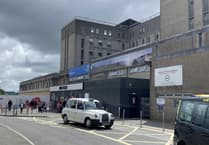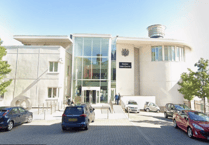2024 will see a general election. Already pollsters are hard at work giving daily updates on the state of play. At the moment the Labour Party seem to be well ahead with a double digit lead over the Conservatives.
Just like economic forecasts, though, opinion polls have not always been reflected in the final count. Neil Kinnock looked to be certain to win the 1992 election against John Major. In his pre-election speech he appeared to take victory for granted. On the day the voters decided that they did not want him, and against the odds, John Major won
Who will be the Government at the end of the year is still very much a guessing game. The Spring Budget may well bring a raft of tax cuts. Inflation continues to fall. The Bank of England has hinted at interest cuts. There is speculation of an income tax cut. All these could have a significant impact on the way people ultimately vote. Against this background many sitting Conservative members of parliament have already indicated that they will not be standing at the next election. Perhaps they see the signs that their position is hopeless. Waiting in the wings is the ghost of the Reform Party, Nigel Farage. What part he will play remains uncertain but may well affect some Conservative-held seats.
Despite the Prime Minister telling us his plans are working he does not even have the full support of his own party. Would-be leaders are circling around him, undermining his position. It all looks rather bleak for him.
Labour, though, cannot afford to be too complacent. Leading in the polls can be unhelpful. Why bother to vote if the position looks cut and dried. Then there lies the political pothole for Labour. Sir Keir Starmer despite his earnest no nonsense persona has failed to capture the imagination of the country as did Tony Blair. There is a lack of enthusiasm for Starmer. Many may well vote for him simply as the lesser of the two evils rather than with a positive view of him and his party. Another factor is the state of mind of traditional Conservative voters. Seeing the dire state of the opinion polls they may decide not to vote.
Both major parties have divisions. The Rwanda proposal has not been agreed within the Conservative ranks. Rebels want it changed and others worry that it disregards human rights. In the Labour camp many leftwing MPs are unhappy about the leadership position on the Israel v Hamas conflict. Labour has also changed its mind on several policies, leaving people uncertain on exactly what they stand for. The decision by Rachael Reeves to confirm that if elected she will not cap bankers’ bonuses caused divisions in the party.
It is also a guessing game as to just how big the turnout on election day will be. For many there is dissatisfaction with politicians in general. Turnout may well be lower than expected. The shout for proportional representation seems to have diminished. The Liberal Democrats and the Scottish Nationalist Party will be fighting for the position of the third largest group in government.
Whatever the final outcome, the new Government will face the same problems of today; asylum seekers, the economy, defence spending and bankrupt councils and the ongoing NHS crisis. There will be no quick fix. Only one thing is certain. The future path is a rocky one.





Comments
This article has no comments yet. Be the first to leave a comment.